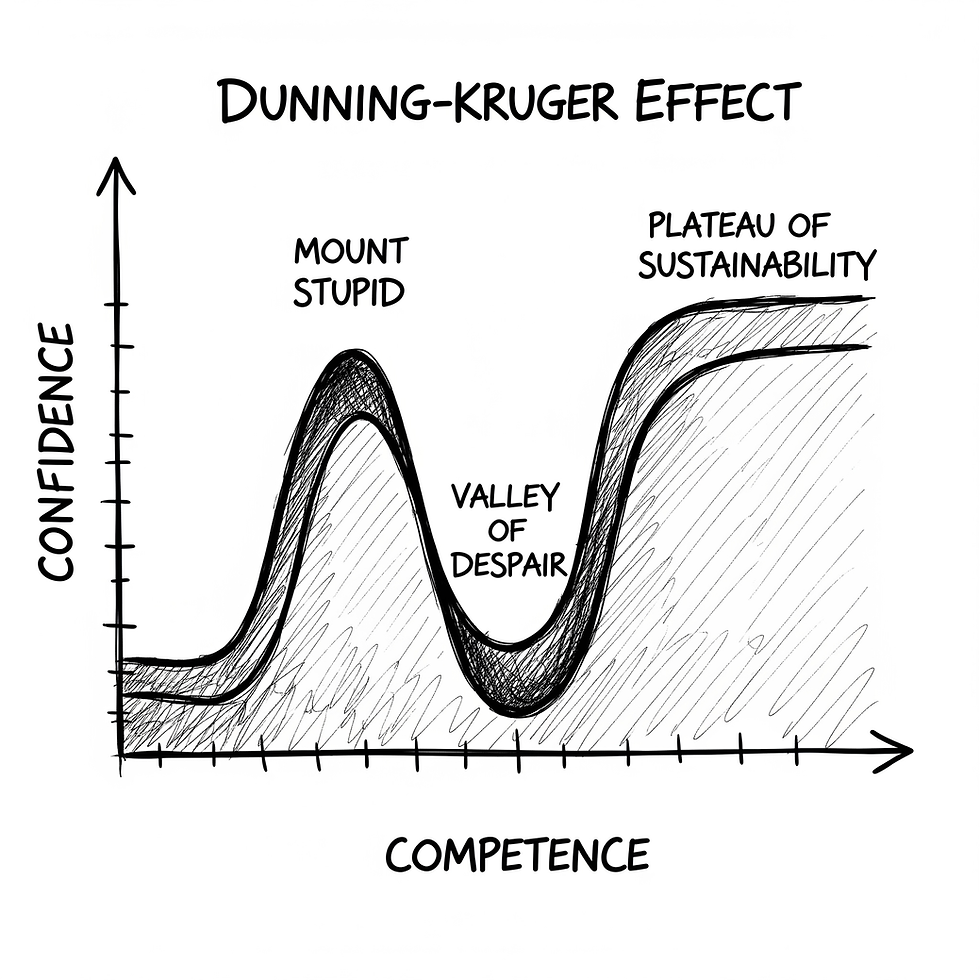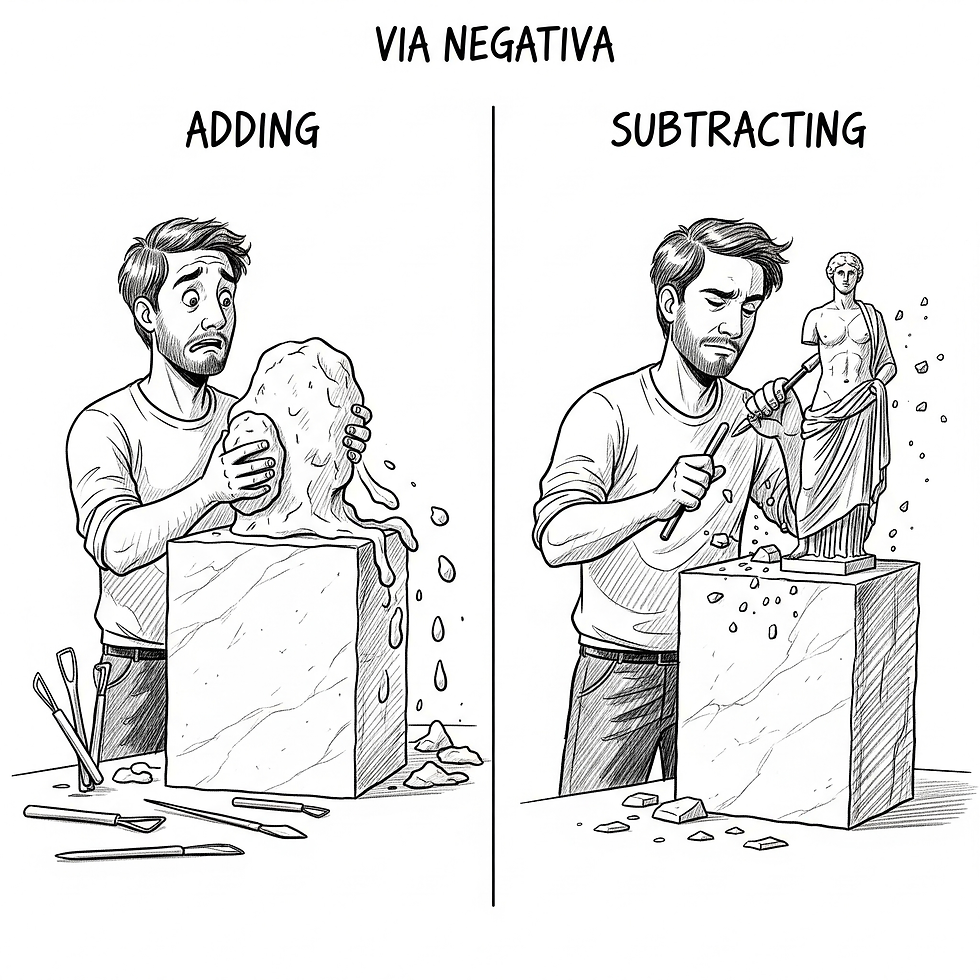The Dunning-Kruger Effect. Confidence vs. Competence
- Stefan Sager

- Aug 16
- 2 min read
Updated: Oct 9
A cognitive bias where people with low ability at a task tend to overestimate their ability.
A teenager earns their driver's license. After a few weeks of driving familiar routes, they begin to believe they have completely mastered the skill, and they are an even better driver than their parents (Peak of Mount Stupid).
Overconfident, they start taking unnecessary risks. Their first near-accident––whether caused by a car pulling out unexpectedly or a patch of ice––shatters this illusion, suddenly leaving them terrified and feeling incompetent behind the wheel (Valley of Despair).

What is the Dunning-Kruger Effect and what does it have to do with confidence?
First described by psychologists David Dunning and Justin Kruger, this effect explains why novices can exhibit such baffling overconfidence.
A person who has just started learning a skill––chess, a musical instrument, or management––has not yet been exposed to the vastness of that field. Their small amount of knowledge feels like a large percentage of the whole, leading them to feel overly confident, a state often called Mount Stupid.
As they learn more, they begin to recognise the complexity and how much knowledge they lack, causing their confidence to plummet into the Valley of Despair. This is a key part of having a strong Circle of Competence, as you can only truly stay within your circle if you have the intellectual humility to recognise where your knowledge ends.
Only with continued learning do competence and confidence begin to rise in tandem.
How can I develop a more accurate sense of confidence?
Be extremely wary of your own confidence when you are new to a subject. Assume you are less competent than you feel.
Conversely, don't be discouraged when your confidence drops as you learn more; it's a sign that you're beginning to understand the true scope of the topic.
We appreciate you subscribing (below) it allows us to:
Publish new Mental Models every week.
Remain 100% independent and ad-free.
Grow our library of resources for the community.
All resources can be found here



Comments